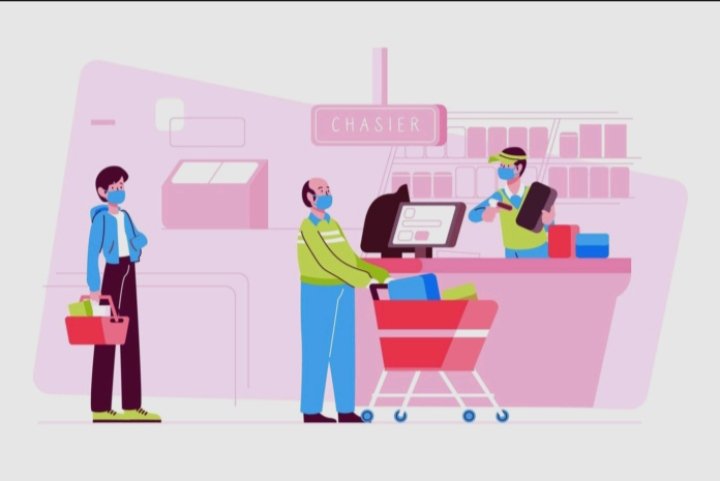Is Consumer Non-Durables A Good Career Path in 2025

Do you want to know if Consumer Non-Durables is a good career path in 2025?
Then you’ve come to the right place.
Consumer non-durables remain a vital industry in 2025, offering exciting career opportunities in fields like marketing, product development, and supply chain management.
With consistent demand for everyday goods and a focus on innovation and sustainability, this sector is both stable and forward-thinking.
For those seeking a dynamic, fast-paced environment with growth potential, consumer non-durables is a promising and rewarding career choice in the modern job market.
Grab a chilled glass of water and keep reading…..
ALSO READ: Is Real Estate Investment Trusts A Good Career Path in 2025
What is a Consumer Nondurables Career?

A career in consumer nondurables involves producing, distributing, or selling high-replacement goods.
These items typically have a short lifespan and include:
- Clothing
- Cleaning products
- Food items
- Cosmetics
- Petroleum products
- Footwear
- Paper products
- Beverages
Average Salaries for Consumer Nondurable Careers
Here are examples of roles in the consumer nondurable field and their average annual salaries.
Salaries can vary based on experience, education, location, and company.
- Quality Assurance Analyst: $41,761
- Production Associate: $38,615
- Communication Specialist: $41,496
- Benefits Coordinator: $48,446
- Brand Manager: $65,647
- Sales Representative: $65,954
- Human Resources Manager: $70,181
- Information Security Analyst: $92,448
- Network Engineer: $89,329
- Digital Designer: $70,919
Note: Salary figures are sourced from Indeed Salaries and may vary based on factors such as hiring organization, experience, and location.
Is Consumer Non-Durables a Good Career Path?
Yes, consumer non-durables can be a great career path for individuals who:
- Have an interest in long-lasting products like home appliances, automotive, electronics, and furniture.
- Want to work in industries focused on durability and innovation.
It offers opportunities to contribute to the development and marketing of products designed to last, often involving cutting-edge technology and sustainable practices.
Job Outlook for Consumer Nondurable Careers
The following professions in consumer nondurables are expected to see growth between 2020 and 2030, as reported by the Bureau of Labor Statistics:
- Human Resources Manager: 9% growth
- Marketing Manager: 10% growth
- Information Security Analyst: 33% growth
- Industrial Production Manager: 5% growth
- Web Developer: 13% growth
Key Trends:
- Growth in these fields is partly driven by employee turnover (e.g., retirements).
- Careers in technology and online retail platforms may see higher demand.
- Developing soft skills and technical abilities can increase competitiveness in the job market.
7 Reasons a Consumer Nondurable Career is a Good Career
1. Professional Growth Opportunities
Many companies offer professional development programs that help employees build new skill sets and leadership abilities.
Common courses include:
- Training and development
- Human resource fundamentals
- Leadership skills
- Finance and accounting
- IT basics
These opportunities can lead to supervisory roles and career advancement.
2. Employment Benefits
Companies provide a variety of employment benefits to promote health, wellness, and financial stability, including:
- Health, vision, and dental insurance
- Life insurance
- Paid time off
- Retirement plans
- Wellness programs
3. International Availability
Large companies often have global facilities, offering opportunities for international roles.
This is ideal for those interested in travel, experiencing new cultures, and making a global impact.
4. Job Variety
The consumer nondurable field offers a range of career paths, including roles in:
- Human resources
- Accounting
- Production
- Sales
- Marketing
- Supply chain
This variety allows you to find a job that matches your skills and interests.
5. Productive Culture
Companies in this industry often foster a highly productive work culture and reward performance.
Key cultural aspects include:
- Diversity
- Inclusivity
- Social responsibility
- Community involvement
These values can lead to better employee satisfaction and a stronger competitive advantage.
6. Networking Opportunities
The diverse nature of the industry provides numerous chances to network with professionals across various fields.
Networking can help you gain insights into the market, connect with experts, and discover new career opportunities.
7. Entry-Level Opportunities
There are many entry-level positions available, providing a great starting point for new professionals.
Career fairs are also an excellent way for students to find valuable opportunities in this growing industry.
ALSO READ: Is Health Care A Good Career Path in 2025
7 Best-Paying Jobs in Consumer Non-Durables
Here’s a ranking of the best-paying careers in consumer non-durables, arranged from the highest to lowest salaries:
1. Chemical Engineer
- Median Salary: $112,100/year
- Education Required: Bachelor’s degree
- Number of Jobs: 21,400
- Job Growth (2023–2033): 10% (Much faster than average)
- Key Duties:
- Work with chemical manufacturing processes to solve industry problems.
- Combine principles of physics, chemistry, and biology to develop and test production processes.
- Industries: cosmetics, pharmaceuticals, energy (oil & gas).
2. Pharmaceutical Financial Analyst
- Median Salary: $99,890/year
- Education Required: Bachelor’s degree
- Number of Jobs: 404,800
- Job Growth (2023–2033): 9% (Much faster than average)
- Key Duties:
- Analyze financial data and provide strategic support for business decisions.
- Oversee financial planning, business performance, and budget planning.
3. Geoscientist
- Median Salary: $92,580/year
- Education Required: Bachelor’s degree
- Number of Jobs: 26,000
- Job Growth (2023–2033): 5% (As fast as average)
- Key Duties:
- Study the earth’s natural resources and develop energy sources.
- Work in industries like renewable energy, oil, and gas.
4. Paper Chemist
- Median Salary: $87,180/year
- Education Required: Bachelor’s degree
- Number of Jobs: 96,400
- Job Growth (2023–2033): 8% (Faster than average)
- Key Duties:
- Optimize paper manufacturing for efficiency and environmental sustainability.
- Conduct applied research in a lab setting.
5. Creative Director
- Median Salary: $82,510/year
- Education Required: Bachelor’s degree
- Number of Jobs: 167,900
- Job Growth (2023–2033): 8% (Faster than average)
- Key Duties:
- Lead creative teams in advertising, marketing, and media projects.
- Oversee project design, execution, and progress monitoring.
6. Environmental Scientist
- Median Salary: $78,980/year
- Education Required: Bachelor’s degree
- Number of Jobs: 84,600
- Job Growth (2023–2033): 7% (Faster than average)
- Key Duties:
- Research and monitor environmental conditions to protect natural resources and human health.
- Analyze sites for energy production viability.
7. Pharmaceutical Sales Representative
- Median Salary: $73,080/year
- Education Required: No degree required
- Number of Jobs: 1,681,400
- Job Growth (2023–2033): 1% (Slower than average)
- Key Duties:
- Travel to healthcare facilities to demonstrate and sell pharmaceutical products.
- Educate healthcare providers on product benefits.
This breakdown makes it easier to compare salaries, job duties, and growth potential for each role.
ALSO READ: Is Capital Goods A Good Career Path in 2025
Skills Needed for a Career in Consumer Non-Durables
Choosing the right career path in the consumer non-durables industry requires understanding and developing the skills necessary for various roles.
Below is a breakdown of the essential skills by role level:
Entry-Level Roles
- Marketing & Communication Skills: Crucial for effectively promoting products and connecting with consumers.
- Attention to Detail: Ensures product quality and adherence to safety standards.
- Flexibility: Ability to adapt quickly to changing market trends and consumer preferences.
Mid to Senior Manager Roles
- Leadership: Essential for managing teams across departments such as production, sales, and marketing.
- Strategic Thinking: Key for creating long-term plans to increase market share and meet consumer demands.
- Project Management: Necessary for coordinating and executing product launches and marketing campaigns.
Mid to Senior Technical Roles
- Product Development Expertise: Advanced knowledge of product design, materials, and manufacturing processes.
- Data Analysis: Ability to interpret consumer data to enhance product offerings.
- Innovation: Developing new product ideas or packaging solutions to meet evolving consumer needs.
By identifying your existing skills and addressing any gaps, you can position yourself for success in the consumer non-durables industry.
Difference Between Durable and Non–durable Goods
1. Lifespan:
- Durable Goods: Last three years or longer (e.g., cars, furniture, appliances).
- Nondurable Goods: Used up in less than three years (e.g., food, beverages, toiletries).
2. Economic Value:
- Durable Goods: Retain their economic value for a longer period.
- Nondurable Goods: Lose their economic value quickly after use.
Conclusion:
Yes, consumer non-durables remains a strong career choice in 2025 due to its steady demand, innovation opportunities, and diverse roles.
This industry offers careers in marketing, product development, and management, appealing to individuals with various skills.
Rapidly evolving consumer trends and sustainability initiatives also make it dynamic and rewarding.
If you value growth, adaptability, and creativity, consumer non-durables is a promising field with long-term potential.
ALSO READ: What Is Not Taken Into Account When Determining A Person’s Career Path?





